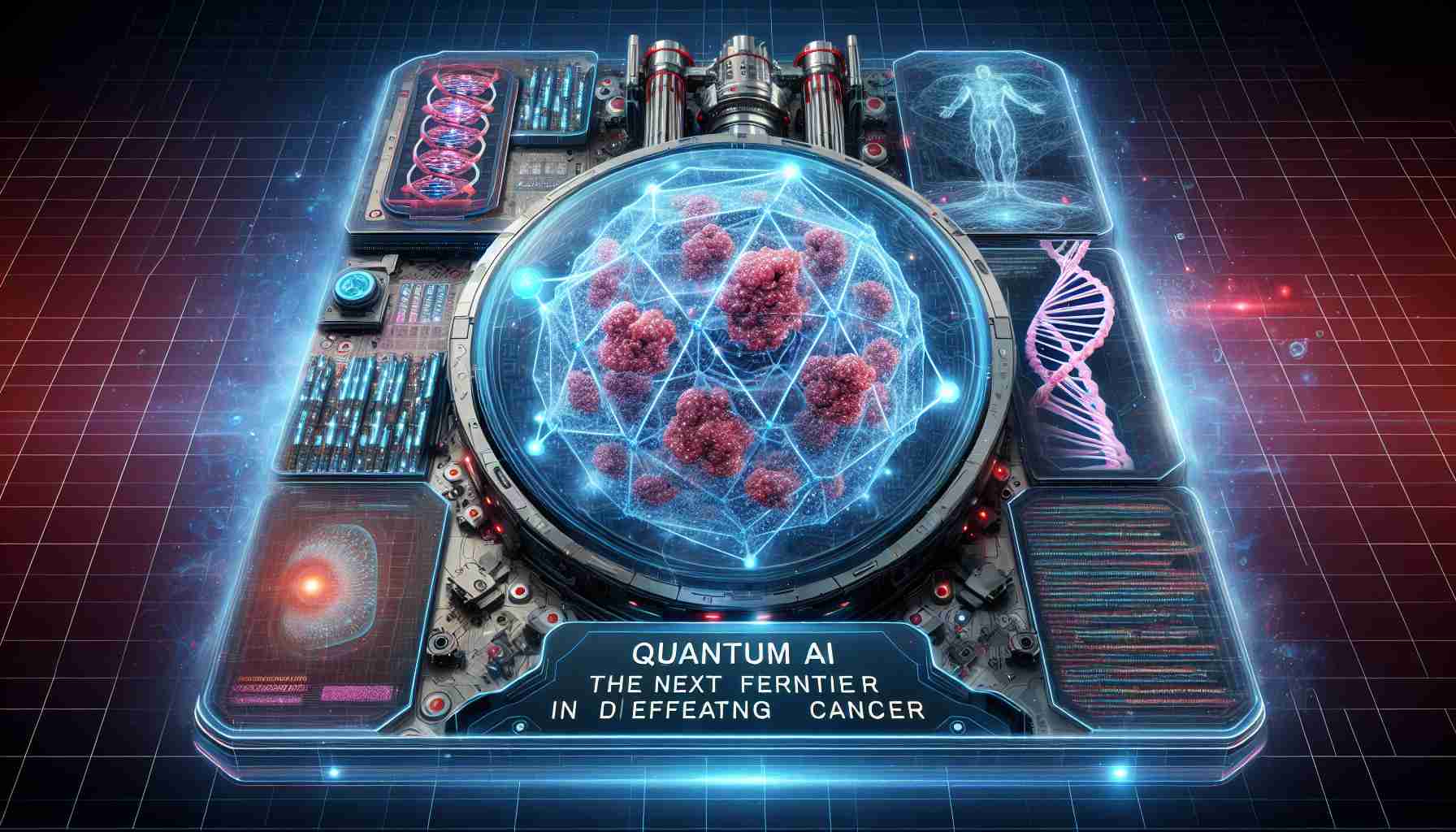- Insilico Medicine and the University of Toronto are pioneering cancer treatment by combining quantum computing and AI.
- The collaboration has generated 15 new molecules, targeting the challenging KRAS protein, with two showing breakthrough potential.
- This synergy reduces preclinical drug discovery timelines from years to months, revolutionizing pharmaceutical development.
- Targeting the KRAS G12C mutation has already resulted in FDA-approved treatments, suggesting vast potential in cancer therapy.
- Advancements offer hope for faster drug access, addressing healthcare disparities and inspiring scientific exploration globally.
- Environmental benefits include reduced waste from streamlined drug development, aligning with global sustainability goals.
In a transformative leap forward, Insilico Medicine, in collaboration with the University of Toronto, is reshaping the future of cancer treatment by merging the awe-inspiring capabilities of quantum computing with artificial intelligence (AI). This pioneering approach has led to the creation of groundbreaking small molecules targeting the elusive KRAS protein—a notorious culprit in various cancers.
This innovative leap has birthed a generative AI model that unveiled 15 fresh molecules, with two gleaming as potential game-changers in cancer therapy. The secret? A seamless blend of quantum computing with traditional methods, slashing preclinical drug discovery timelines from years to mere months, igniting a revolution in the pharmaceutical world.
Considered nearly impossible to drug in the past, KRAS proteins play a critical role in cancers, including non-small cell lung cancer. Yet, triumph in targeting the KRAS G12C mutation has already led to FDA-approved treatments, promising a dawn of possibilities in combating these difficult targets.
The societal ripple effects of such advancements are profound. Faster drug discovery offers renewed hope for millions confronting cancer, while quicker access to cutting-edge therapies can bridge healthcare disparities globally. Moreover, the integration of AI and quantum computing paves a path for a cultural revolution, inspiring a new generation’s foray into scientific exploration.
What’s more, the potential environmental benefits are vast. Streamlining drug development curtails waste, aligning with sustainable global goals. As these technologies continue to entwine with healthcare, we stand on the brink of upheavals not just medical but social and economic.
Join us on this journey as quantum AI reshapes the fight against cancer, signaling a brighter, healthier future for generations to come.
Revolutionizing Cancer Treatment: Quantum AI’s Edge in Drug Discovery
The Quantum AI Revolution in Cancer Treatment
Recent advancements by Insilico Medicine, in partnership with the University of Toronto, have marked a pivotal shift in cancer treatment methodologies. By integrating quantum computing and artificial intelligence (AI), scientists have developed innovative small molecules aimed at the KRAS protein, a challenging target in many cancers. This groundbreaking approach has significantly accelerated the drug discovery process, reducing years of research to a few months.
Key Innovations and Market Forecasts
# What are the specific innovations in applying quantum computing to drug discovery?
Quantum computing allows for complex simulations and predictions that traditional computers struggle with, drastically improving the precision of molecular modeling and optimization. This leads to faster identification of viable drug candidates and speeds up preclinical development phases.
# How does this advancement impact the pharmaceutical market?
With reduced timelines for drug development, pharmaceutical companies can bring effective treatments to market more quickly, potentially increasing their revenue streams. The market for cancer drugs could see substantial growth, driven by the rapid introduction of innovative therapies.
# How does the societal integration of these technologies contribute to sustainability?
Integrating AI and quantum computing in drug discovery not only speeds up processes but also reduces the resources needed for extensive trials, aligning with sustainability goals by minimizing waste and energy consumption in research.
Pros and Cons of Quantum AI in Medicine
Pros:
– Efficiency: Quantum AI drastically reduces the time required for drug discovery and development, allowing faster access to new treatments.
– Precision: Enhanced accuracy in targeting complex protein structures such as KRAS can lead to more effective therapies.
– Sustainability: Reduced resource and energy consumption during drug development align with global sustainability goals.
Cons:
– Cost: Implementation of quantum computing infrastructure is expensive and requires substantial initial investment.
– Complexity: The integration of these advanced technologies requires specialized knowledge and expertise.
– Ethical Concerns: Rapid advancements might outpace regulatory frameworks, raising ethical and safety issues.
Future Predictions and Trends
The fusion of quantum computing and AI in drug discovery is expected to transform not only cancer treatment but the entire pharmaceutical landscape. Experts predict a surge in personalized medicine approaches, where treatments are tailored to individuals based on genetic and protein-level analyses.
Related Domains
For further exploration into the transformative power of AI and quantum technology in healthcare, visit:
– Insilico Medicine
– University of Toronto
Explore how quantum AI is reshaping the future of medicine and join the journey towards a brighter, healthier tomorrow.
The source of the article is from the blog publicsectortravel.org.uk












